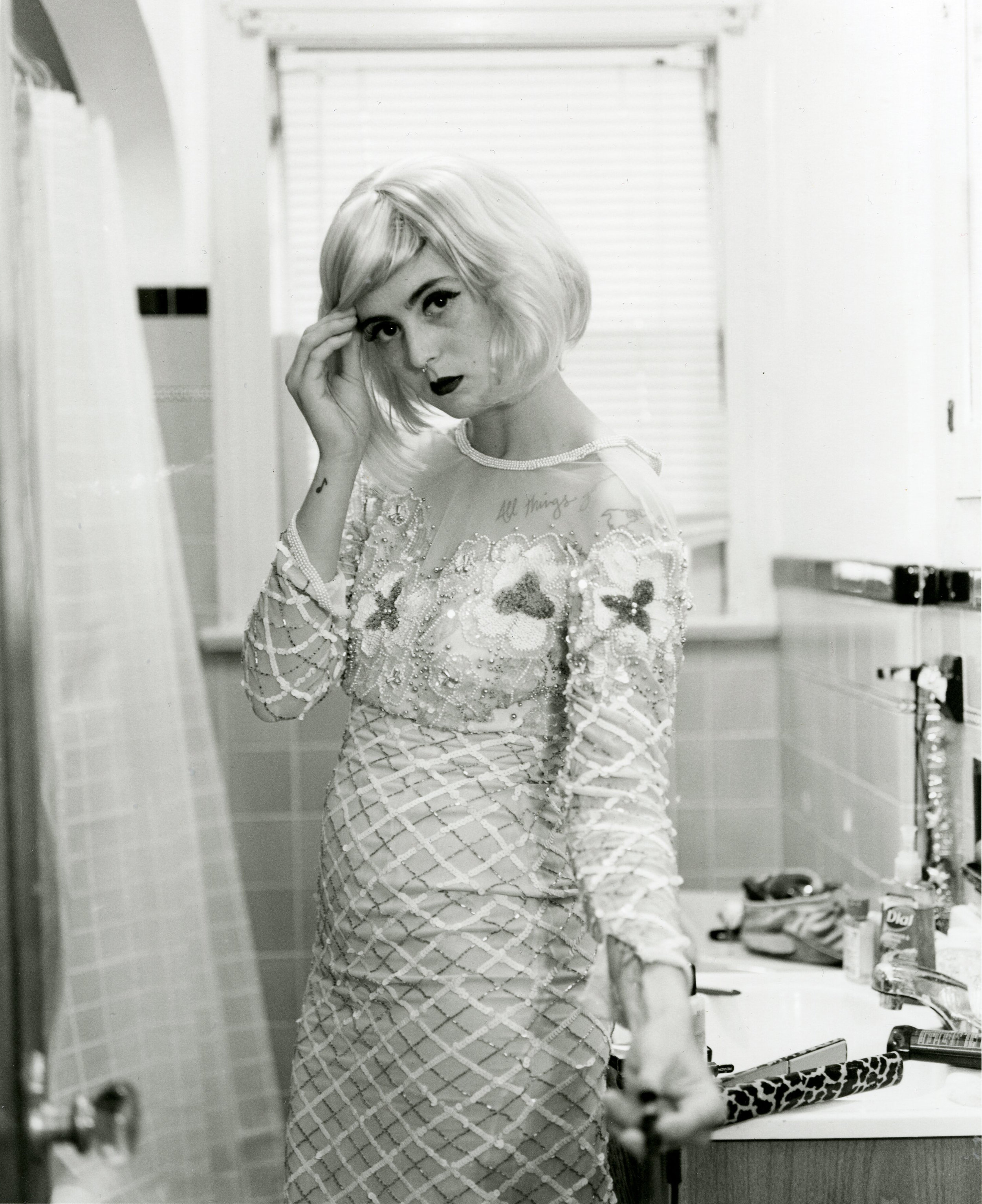After Cindy Sherman
Brooke Ellen
Brooke holds a BFA in Photography and minor in Art History from The University of Akron’s Myers School of Art. Brooke uses their camera to help solve curiosities about both the world and themself.
Lost Memories
While memories may be ephemeral in the moments they cross your mind, you trust them to stay. You trust the brain that is attached to your body to do its job and keep them for you. In pursuit of well-being, I lost that trust and I lost 6 months of recent time. At first I couldn’t remember people’s names that I had met within the month, then I couldn’t remember important days or interactions like a family wedding I recently attended, and then, when I returned back to school, I couldn’t remember where I left off, what a semester-long research paper was on, or an entire body of photography. My work felt foreign, I felt estranged from my peers, and my entire existence felt surreal. It’s similar to that feeling when you’re driving a route you take often and suddenly you’re home but you’re not exactly sure how you got there; I’m not exactly sure how I got here. So, I did what I know how to do, and turned the camera back in on myself.
Untitled: An Area Study of an Atypical Rust Belt City
This project is an area study focusing on a neighborhood in East Cleveland that was affected by its close proximity to a landfill. While most Rust Belt cities were gaining prosperity in the early 20th century, this neighborhood never stood a chance. The Harvard Refuse landfill opened in 1949, closed in 1988, and has never been properly shut down. Low taxes and cheap property values drew in a low socioeconomic population and many families who moved into this neighborhood have stayed throughout multiple generations. These photographs document this neighborhood which is now undergoing gentrification in an attempt to make it more habitable.
In This Life
Striving to understand the human condition, Brooke turns the camera inward to find peace in the small pauses of daily life. The majority of their inspiration comes from watching others rather than watching themself. These caught moments of quiet introspection—both true and fictitious—are relatable to the viewer and draw the viewer into their world.
